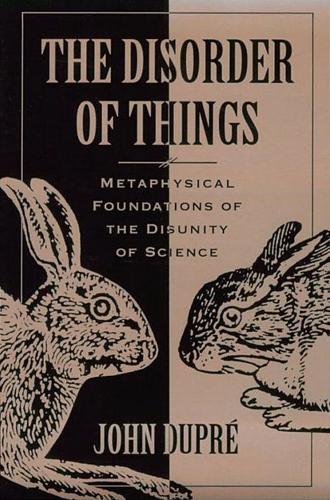Full Product Details
Author: John Dupré
Publisher: Harvard University Press
Imprint: Harvard University Press
Edition: New edition
Dimensions:
Width: 15.20cm
, Height: 1.70cm
, Length: 22.90cm
Weight: 0.390kg
ISBN: 9780674212619
ISBN 10: 0674212614
Pages: 320
Publication Date: 19 March 1995
Audience:
College/higher education
,
Professional and scholarly
,
Undergraduate
,
Postgraduate, Research & Scholarly
Format: Paperback
Publisher's Status: Active
Availability: Out of stock

The supplier is temporarily out of stock of this item. It will be ordered for you on backorder and shipped when it becomes available.
Reviews
Dupre's book is original, lucid and confident, without being eccentric, polemical or arrogant. It deserves close attention... Dupre insists that there is no general scientific method, process, or attitude... He pins down the notion of the unity of science as a form of scientism appropriate only to a Utopia or to totalitarianism. He notes that 'paradoxically, with the disunity of science comes a kind of unity of knowledge.' That is why, to my mind, this is just the kind of philosophical teaching that is needed to close the gap between the two cultures. -- John Ziman * Nature * The thesis of 'disorder' has revolutionary implications for the practice of science... [This book] should be read by every student of the subject as an antidote to current philosophical correctness, and it should indeed suggest to professionals that many of the fashionable empires of analytic philosophy as well as philosophy of science are not well-clothed. -- Mary Hesse * International Studies in the History and Philosophy of Science *
Dupre's book is original, lucid and confident, without being eccentric, polemical or arrogant. It deserves close attention...Dupre insists that there is no general scientific method, process, or attitude...He pins down the notion of the unity of science as a form of scientism appropriate only to a Utopia or to totalitarianism. He notes that 'paradoxically, with the disunity of science comes a kind of unity of knowledge.' That is why, to my mind, this is just the kind of philosophical teaching that is needed to close the gap between the two cultures. -- John Ziman Nature
The thesis of 'disorder' has revolutionary implications for the practice of science...[This book] should be read by every student of the subject as an antidote to current philosophical correctness, and it should indeed suggest to professionals that many of the fashionable empires of analytic philosophy as well as philosophy of science are not well-clothed.--Mary Hesse International Studies in the History and Philosophy of Science
Author Information
John Dupré is Associate Professor of Philosophy at Stanford University and the editor of The Latest on the Best: Essays on Evolution and Optimality.



